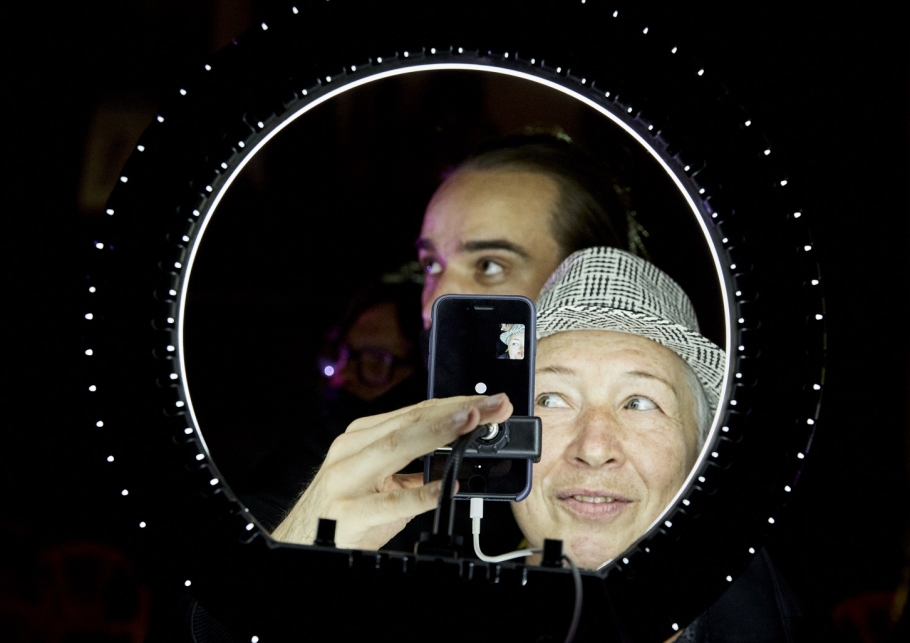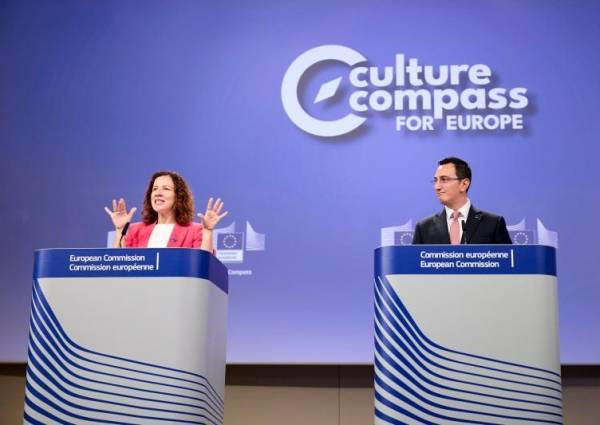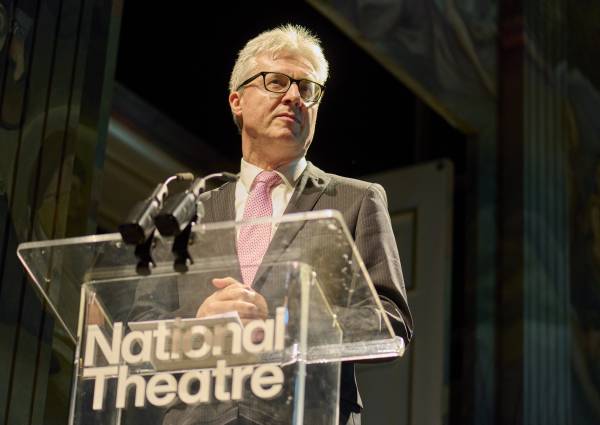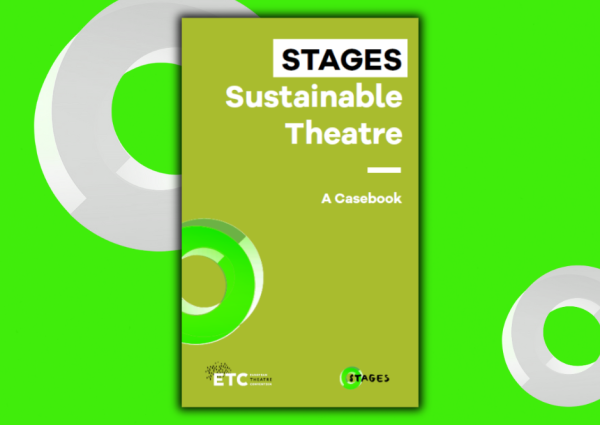Digital theatre boomed during the lockdowns and restrictions of the COVID-19 pandemic, a new study has found.
Digital Theatre – Strategies and Business Models in European Theatre, a study by the European Theatre Convention (ETC) and the Academy for Theatre and Digitality in Dortmund, finds that digital theatre ticket sales in Europe were up 772% from 2019-2021 – while regular ticket sales fell by over two-thirds during the same period.
In addition, the research finds that most theatres (80%) believe digital theatre helps train staff in new skills, but that the cost of producing digital theatre remains a major obstacle.
KEY FACTS:
- The study collects responses from 19 ETC theatres in 17 countries for a three-year period
- It provides data on digital productions, budgets, ticket sales, investments, personnel and training - and also areas of digital growth, challenge, and disagreement
- Digital theatre ticket sales were up 772% from 2019-21, and digital roles in European theatres were up 286%
- There is some concern about an increasing proportion of freelance or short-term staff taking digital roles
- 74.3% of theatres that did not produce digital theatre attributed this to a ‘lack of interest’ from their creative team.
The study follows ETC’s publication of Performing Arts Recordings and Broadcasts: A practical manual on author’s and related rights, and ETC’s ongoing work on digital innovation in theatre, including participation in the large-scale, cross-Europe digital theatre project, ACuTe: Culture Testbeds for Performing Arts and New Technology.
Defining Digital Theatre
The study, thought to be the first analysis of digital theatre across Europe during the pandemic, was written by Dr Katie Hawthorne, a researcher whose doctoral thesis covered digital technologies and ‘liveness’ in performance.
It is based on three years’ worth of financial, operational and artistic data contributed by 19 publicly-funded theatres across Europe. The study was developed alongside the Academy for Theatre and Digitality, the high-profile project for digital innovation, artistic research and education and training in Dortmund, Germany.
One aim is to develop a shared vocabulary for digital theatre. The results are therefore divided into three sections:
- Digitally Distributed Theatre: Theatre that is broadcasted from where it is taking place to a remote audience. Could be live or previously recorded
- Digitally Mediated Theatre: The use of digital technologies within the dramaturgy of a performance to mediate the audience’s direct experience of a performance – which includes the use of a smartphone or augmented reality
- Digitally Located Theatre: Theatre which takes place in a digital location, such as Zoom or an entirely digital platform.
Pricing and Case Studies
The study finds that theatres have difficulties tracking, quantifying, and qualifying views for digital theatre, particularly for digitally distributed and located performances.
Similarly, there is a lack of consensus on the ticket price of digital distributed theatre: just 53% of theatres were willing to charge for digitally distributed theatre in 2021, despite 38.3% of theatres reporting that the cost of producing this theatre was a challenge.
On the other hand, more than 80% of theatres that made digitally located theatre believe that it can reach “new audiences”. Digitally mediated theatre was found to be the most highly-regarded in terms of artistic innovation and creative expression, with more than 65% of theatres reporting it to be a success in this way.
The study concludes with two in-depth case studies from Dakh Theatre, Ukraine, and Folkteatern Göteborg, Sweden, as examples of successful and transformative digital strategies.
Speaking about the study, ETC Executive Director Heidi Wiley said:
“There is still much to explore, but this study equips us with deep, cross-European knowledge about the vital developments in digital theatre and business models in European theatres. This will become increasingly relevant and important as theatre establishes itself in a digital sphere, and the concept of ‘discoverability’, or being able to find theatre when looking for other cultural experiences online, becomes more commonplace.
"We hope you enjoy exploring the study, and that it serves as inspiration for digital developments in your own theatres and cultural environments.”
Marcus Lobbes, Director of the Academy for Theatre and Digitality, said:
“The Academy has spent the past four years working with theatres and individual artists as they experiment on projects with new technology. We have always wanted to know how widespread digital innovation was in the theatre sector across Europe, so it is incredibly useful to be able to partner with ETC to get this insight into where digital theatre is – and is not – working for our colleagues. The conclusions in this study will help us plan more useful and exciting collaborations in the future.”
Report author Dr. Katie Hawthorne added:
“Previous research into the development of digital tools in the theatre has been country-specific or addressed arts and culture industries more broadly. This study offers an in-depth exploration of the ways in which digital tools and technologies are shaping European theatre and presents a cross-European perspective based on three years’ worth of financial, operational and artistic data contributed by each participating ETC Member Theatre.
“This makes it possible to draw broad conclusions about the status of digital theatre in Europe, as well as to pinpoint shared challenges, divergent attitudes, and specific routes towards successful, sustainable digital strategies.”
Press Contact
All enquiries should be directed to ETC’s Communication Manager, Christy Romer:
communication@europeantheatre.eu
or + 49 17 235 720 92
About ETC
Founded in 1988, the European Theatre Convention (ETC) is the largest network of public theatres in Europe. It is an arts organisation that promotes European theatre as a vital platform for dialogue, democracy and interaction that responds to, reflects and engages with today’s diverse audiences and changing societies. ETC’s programme of grants and events support networking, professional development and artistic collaborations for theatre staff across Europe — championing theatre as a key European art form for the 21st century.
ETC has 61 members from 30 countries and is supported by the Creative Europe Programme of the European Union.







